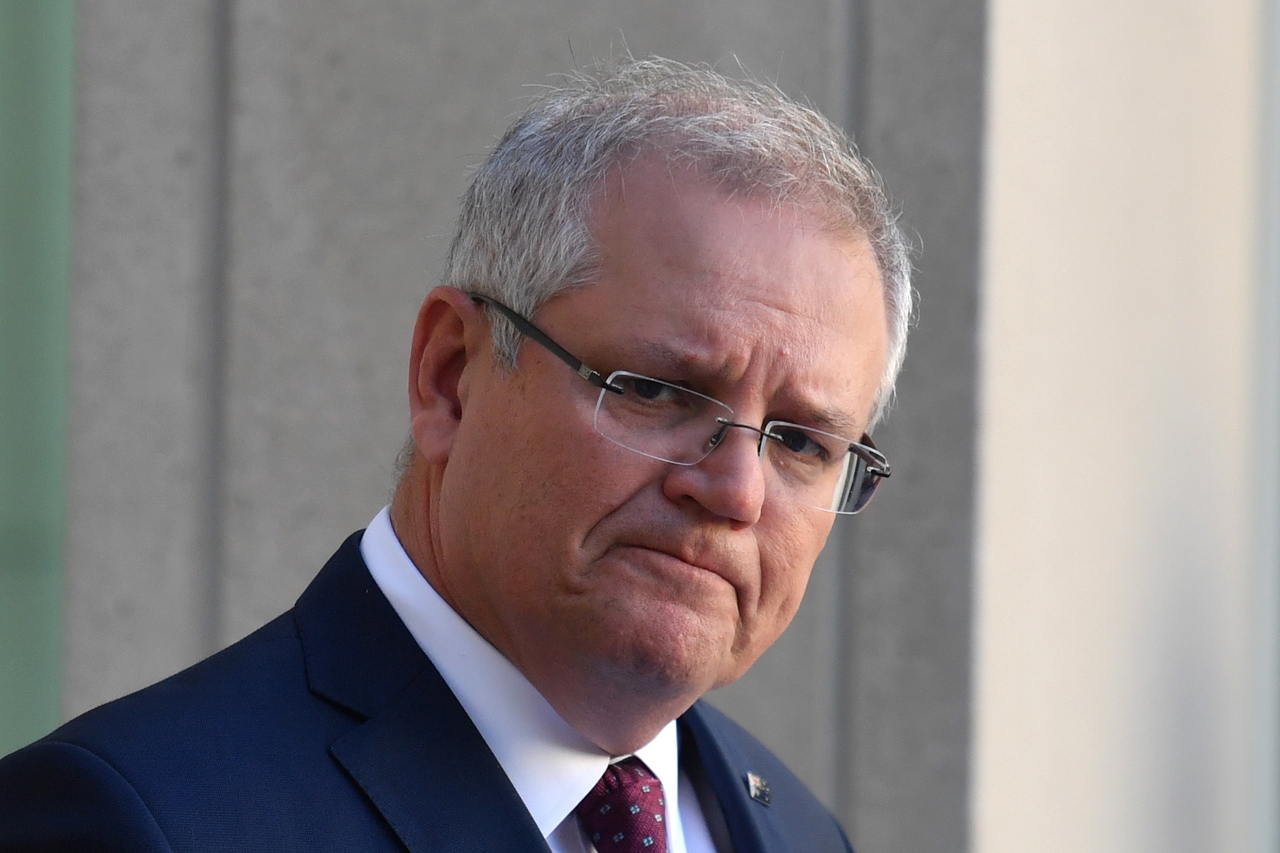Australian PM Scott Morrison on China tensions: Country won't trade values in response to 'coercion'
Sign up now: Get insights on Asia's fast-moving developments

Australian Prime Minister Scott Morrison said it was a "ridiculous assertion" that China had warned against racist attacks against Asians during the pandemic.
PHOTO: EPA-EFE
SYDNEY (REUTERS, AFP) - Australian Prime Minister Scott Morrison said that he would not be intimidated or give into coercion when asked on Thursday (June 11) whether Australia would keep taking hits on exports from major trading partner China.
Diplomatic tensions between China and Australia have worsened after Australia called for an international inquiry into the source and spread of the coronavirus, angering Beijing.
The World Health Assembly last month voted to support an independent review into the pandemic after Australia and the European Union led lobbying.
On Tuesday, China's Ministry of Education said students should reconsider choosing to study in Australia, threatening Australia's fourth-largest export industry, international education, worth A$38 billion (S$36.7 billion) annually.
"We are an open-trading nation, mate, but I'm never going to trade our values in response to coercion from wherever it comes," Mr Morrison told radio station 2GB on Thursday.
China has in recent weeks banned Australian beef imports and imposed tariffs on Australian barley.
The warning for students followed a similar warning last week from Beijing for Chinese tourists to avoid Australia.
In both cases, officials in Beijing said the warnings were due to racist attacks against Asians during the pandemic.
"That's rubbish. It's a ridiculous assertion and it's rejected. That's not a statement that's been made by the Chinese leadership," Mr Morrison said in a separate interview on 3AW.
Beijing defended its travel advice at a briefing on Thursday, saying it was "based on a large volume of facts".
"I don't know where the Australian leader's so-called "coercion" comes from," foreign ministry spokeswoman Hua Chunying told reporters.
"We advise Australia to face up to the problem, reflect on itself, and take concrete measures to protect the safety and rights of Chinese nationals in Australia," she said.
Australia lodged a protest with the Chinese foreign ministry in Beijing, and the Chinese embassy in Canberra, about China's travel and student warnings, said a spokesman for the Department of Foreign Affairs and Trade.
The Australian government rejected the assertion it was unsafe to visit or study in Australia, a statement said.
"Australia provides the best education and tourism products in the world," Mr Morrison told 2GB. "The ability for Chinese nationals to be able to choose to come to Australia (has) substantively been their decision. And I'm very confident in the attractiveness of our product."
The coalition representing Australia's elite universities, the Group of Eight, has said international education was "being used as a political pawn".
The Australian National University's chancellor, Ms Julie Bishop, formerly Australia's foreign minister, said the university offered students from more than 100 countries a world-class education.
"Canberra is one of the safest cities in a country widely regarded as one of the safest in the world," she said.
Many international students have been unable to return to Australia because of travel bans to stop the spread of Covid-19, but ANU said most of its students remained enrolled and 65 per cent of its Chinese students were in Australia.
Monash University's vice-chancellor Margaret Gardner told ABC Radio it was "very tense times diplomatically between China and Australia and in fact in this case universities and their students from China are part of the collateral".
China is Australia's largest trading partner, with two-way trade worth A$235 billion a year.


